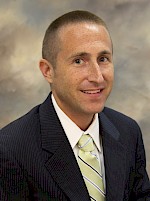AASP Newsletter - July 2018
What’s Your ‘Handle’?: Ethical Issues and Considerations for Title Use When Using Social Media
Amber Shipherd, PhD, CMPC, Texas A&M University – Kingsville
Brandonn Harris, PhD, CMPC, Georgia Southern University
Hillary Cauthen, PsyD, CMPC, Texas Optimal Performance & Psychological Services, LLC



As technology and social media continue to evolve, the utilization of social media by academics and professionals in our field is also expanding. Technology and social media are often used in sport, exercise, and performance psychology settings for organizational purposes or record keeping, conducting sessions via distance, and assisting clients in skill development (Shipherd, Zito, Etzel, & Harris, 2014; Watson & Halbrook, 2014). Additionally, more and more practitioners in our field are also using social media to market themselves or their businesses, connect to consumers, and interact with teams or athletes (Watson & Halbrook, 2014). As the field advances and professionals continue to incorporate social media and technology into their work, it is essential that practitioners become intimately familiar with relevant ethical issues involved with technology usage in their professional work.
AASP has adapted to trends in the field to ensure best practices are met to protect its members and the general public. For more information on recent ethical policies regarding technology, members are encouraged to review the AASP Ethics Code, Standard 26. It is important to know there are both legal and ethical implications that arise when using technology, and more specifically social media (see Watson, Schinke, & Sampson, 2014, for further information). One of these considerations includes how one represents him- or herself on social media platforms. With the recent title change in the certification credential from CC-AASP to CMPC (Certified Mental Performance Consultant), it is even more essential that practitioners understand how to utilize and represent professional titles and credentials with the appropriate terminology on their social media and/or websites.
Best practices involve adequate representation of yourself and the field. While character limitations on platforms may make it difficult to fully capture all areas of expertise, AASP members are still ethically and legally bound to represent themselves properly. For example, members’ title and/or short biography should represent both their services and education or training appropriately. Principle B: Integrity, of the AASP Ethics Code reads, "When describing or reporting their qualifications, services, products, fees, research, or teaching, [AASP Members] do not make statements that are false, misleading, or deceptive” (AASP, n.d.). While the use of titles and terminology is regulated by the region a member practices in, most states in the U.S. restrict the usage of the terms psychology, psychologist or other variations of these words to only those who are licensed psychologists and psychiatrists (Zito, Herzog, & Shipherd, 2013). Merely earning a degree in psychology or sport psychology does not enable you to use this terminology (Zito et al., 2013), including the commonly-used title of Sport Psychology Consultant. Incorrect representation can have significant legal implications, so all practitioners are encouraged to educate themselves regarding the laws where they practice.
Given that misrepresentation is a common ethical pitfall, the following are some examples to assist you in correct title usage. These examples outline acceptable title usage and they are generally representative of the American perspective, due to the authors training and expertise. You are recommended to seek guidance from your state and/or regional laws on title usage in your region.
- Student: Master’s student in sport psychology, ABC University
- Master’s level: Draco Malfoy, M.A., CMPC, Mental Performance Consultant
- Post graduate: Ron Weasley, Psy.D., post-doctoral fellow, supervised by: Albus Dumbledore, Psy.D., CMPC
- Doctoral level: Hermione Granger, Ph.D., CMPC, Licensed Psychologist #394, or Harry Potter, Ph.D., CMPC, Mental Performance Consultant
It is also essential that members’ title be consistent across all platforms (e.g., email signature, website information, social media) and that one’s biographical information on these platforms is also represented correctly based on degree, training, and work in the field. Consider the following examples of biographies on two popular social media platforms including Facebook and Twitter.
- Facebook:
- Steph Curry, Certified Mental Performance Consultant (CMPC) at GSW Performance, LLC. Steph provides mental performance coaching to athletes, coaches, teams or organizations, and non-sport performers.
- Draymond Green, Ph.D., CMPC, Assistant Professor of Sport and Exercise Psychology at Golden State University. Draymond teaches undergraduate and graduate level courses in sport psychology, exercise psychology, coaching psychology, and sport sociology in the Department of Kinesiology. He also provides supervision and mentorship to students working towards the CMPC mark.
- Twitter:
- Klay Thompson; CMPC and Program Director, Associate Professor of Sport and Exercise Psychology at Golden State University. Elite sport, basketball, & team cohesion specialist.
These tips are significant for those new to the field and learning best practices to market trade and build a brand, but at a greater level significant to representing and building a consistent name for the field of sport and exercise psychology at large. Social media and technology platforms provide an opportunity to connect to others, educate, and enhance the field of sport, exercise, and performance psychology. Thus, it is critical to ensure we continue to remain educated about advantages, disadvantages, and current best practices as we continue to integrate the multitude of technology types into our varied responsibilities as teachers, practitioners, and researchers in our field.
References
Association of Applied Sport Psychology (n.d.). Ethics Code: AASP ethical principles and standards. Retrieved from http://www.appliedsportpsych.org/about/ethics/ethics-code/
Shipherd, A. M., Zito, M. D., Etzel, E., & Harris, B. (2014, Summer). Tweeting and competing: Ethical considerations of social media usage for sport and exercise psychology practitioners. Association for Applied Sport Psychology (AASP) Newsletter, 27-28.
Watson, J. C. & Halbrook, M. (2014). Incorporating technology into practice: A service delivery approach. In J. G. Cremades and L. Tashman (Eds.), Becoming a sport, exercise, and performance psychology professional: A global perspective (pp. 152-159). New York: Psychology Press.
Watson, J. C., Schinke, R. & Sampson, J., (2014). Ethical issues affecting the use of teletherapy in sport and exercise psychology. In E. Etzel and J.C. Watson (Eds.). Ethical issues in sport, exercise and performance psychology, (pp. 139-150). Morgantown, WV: Fitness Information Technology.
Zito, M. D., Herzog, T., & Shipherd, A. M. (2013, Spring). What’s in a name? Some ins and outs of representing yourself. Association for Applied Sport Psychology (AASP) Newsletter, 17-18.
The July 2018 issue of the AASP Newsletter includes the following articles:
- President's Message: AASP Progress, Prospects and Strategic Planning
- Writing and Submitting Your AASP Journal Manuscript: The Inside Scoop
- What's Your 'Handle'?: Ethical Issues and Considerations for Title Use When Using Social Media
- Integrating Psychophysiological Training into Sport Psychology Consulting
- July & August Diversity Month Announcements
Click here to return to the full list of past AASP Newsletter issues.



